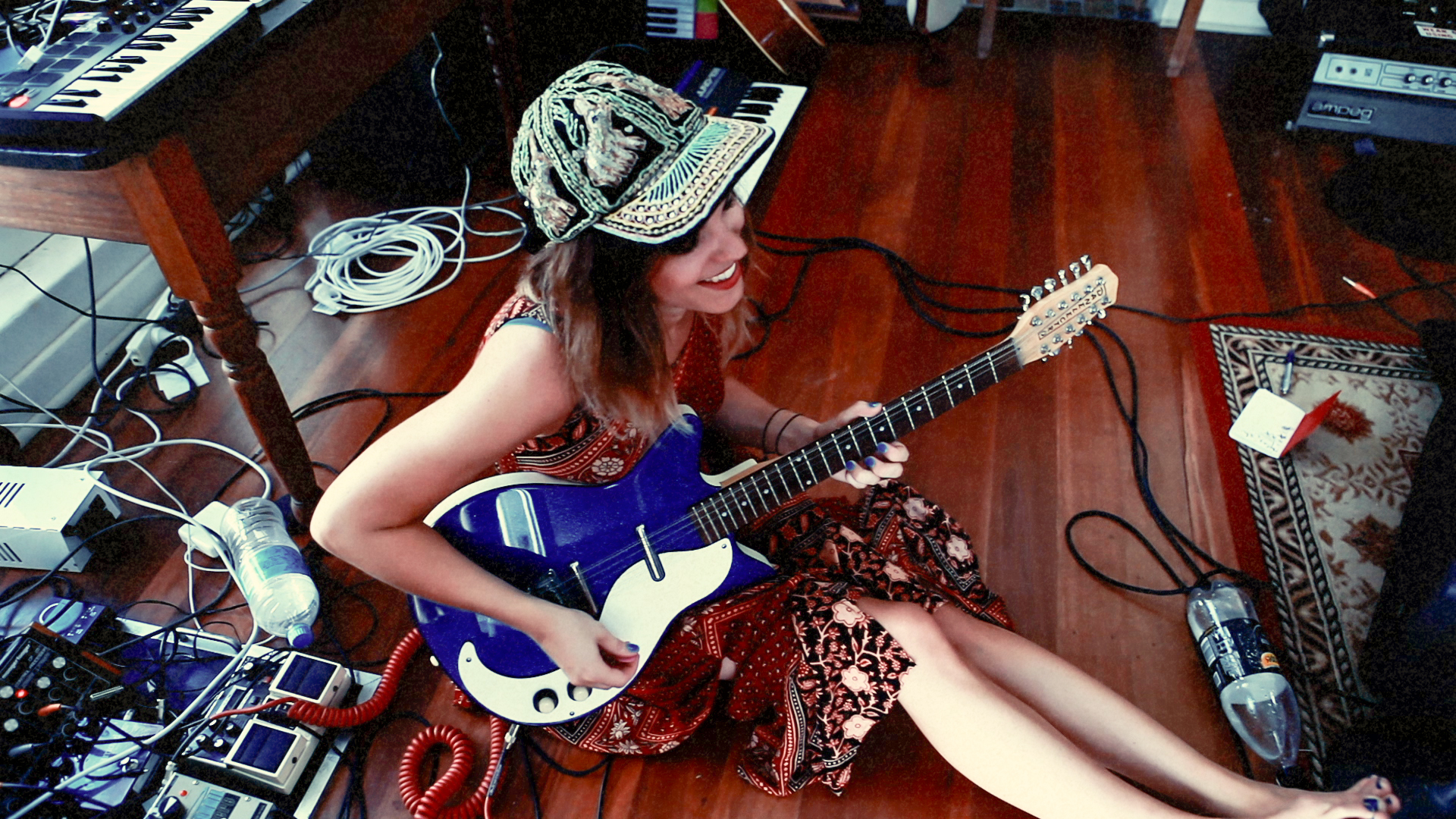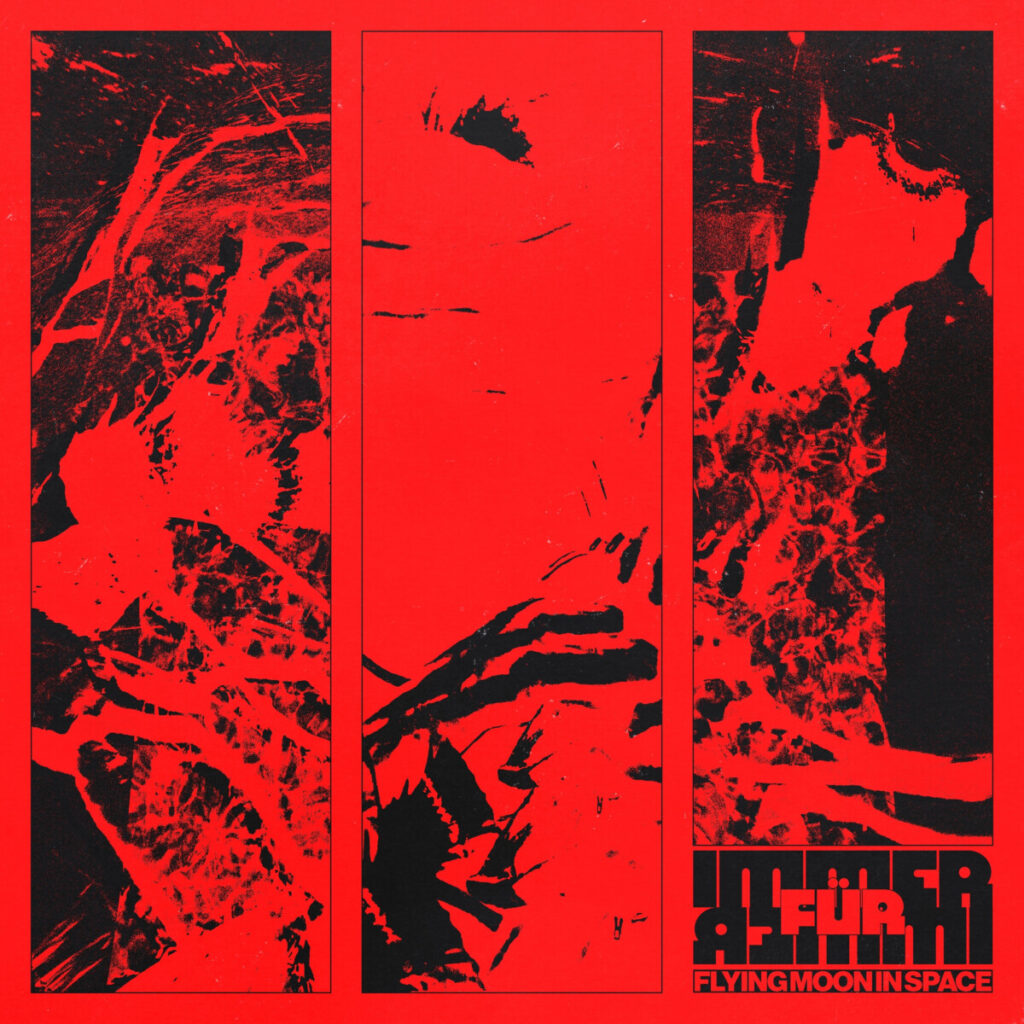Melody’s Echo Chamber: Unfold–Album Review
Melody’s Echo Chamber: Unfold–Album Review
Unfold is the fourth album by the French psychedelic pop band Melody’s Echo Chamber. Written nearly a decade ago, the “lost and found” album sounds as if it could have been written today.
Recorded in Perth, Australia, in 2013, Unfold’s dreamy coastal qualities bleed through every track. On opener “Pêcheuse de Lune”, Melody’s vocals are obscured by crashing, cymbal-heavy percussion, a trembling lead guitar, and forests of distortion. The song sways in and out of our grasp; choruses crash like a proverbial surf upon the shore. “It feels so far to September” Melody sings, reminding us that (although the album’s final cut would be released at the end of September nine years after its conception) presently we inhabit the summer.
The first half of Unfold concerns itself with little else than lounging upon Australian beaches; lazy halcyon soundscapes move in and around us. As the album progresses, we touch on the origins of psychedelia and counterculture pop. “Ocean Road”, track 2, opens with swagger: a shimmying bass, a snare, and tom-toms reminiscent of the Animals and the twirling descent into Simon and Garfunkel’s “A Simple Desultory Philippic”. Melody’s voice soars high above the music, like a bird flying high above the ocean road she sings of. Close your eyes, and you might even think you’re hearing Grace Slick. Sitars and Eastern scales crop up on every track: hailing the classic pop-psychedelic sounds of the Yardbirds, the Beatles, and Brian Jones-era Rolling Stones.
Lyrically, Unfold is sparse. Choruses and verses possess a simple incantatory quality. One hallmark of the psychedelic genre are interrogations of reality, mortality and the passage of time. The cycles that guide Unfold are seasonal. On “Pêcheuse de Lune”, Prochet admires the distance between now and September; on “Norfolk Hotel”, she chants, over and over again: “and I swim, and I swim, and I swim, and life is so long”. The coastal summer setting is tied to the season’s eventual waning, or rather Prochet’s coming departure from its splendor. This aesthetic commitment to location, coupled with ruminations on its end, disrupt the album’s initial idyllic lie-in with serious anxiety.
On the titular track four, “Unfold”, Prochet asks: “How long until the end?” The answer comes in the form of “From Pink They Fell into Blue”. Track 5– The urgency of “Ocean Road” is gone. The song’s key is apprehensive and the title evokes transformation and change. Gone from idyllic waters, we sense a leaving, a change of state. The cymbals and organ distortion push us into a cosmic space, and there we drift, as Prochet herself wanders without direction: “You’re so cool, I am so dark” she sings, “and facing took me so long”, until finally she realizes: “I’m fucking freezing and lost”. Whatever security she has found on coastal Perth is gone, and without it, the album’s identity crisis enters the foreground.
Unfold’s production ended abruptly when Prochet’s relationship with Kevin Parker (of Tame Impala) ended, too. Production occurred primarily in Perth (secondarily in France), but it was the eventual split of the Prochet/Parker collaboration that led to the Unfold’s hibernation. Does the album’s sense of loss and disorientation reflect the album’s rocky journey to fruition? Or do these themes precede its creators’ fallout, and does it sense the coming end? Part of Prochet’s crisis on the album seems partially to ask what it means to be without its co-creator.
Matt Sav
The album’s unfinished nature is evident on almost every track. Abrupt endings and informal intros expose the skeleton of Unfold’s composition. One reason this saves the album from sounding too patchworked is that all the songs sound similar. The tone and voice of the album are consistent, each style indistinguishable from the next. One might even say that the songs sound too similar. Lyrically, we arrive at no higher point than Prochet’s grief at leaving being a brief season of Australian sun and sand.
The recovered nature of Unfold raises valuable questions about the motivations and merits of rescued work. Written nine years prior, we must ask Prochet’s reasons for giving us this album now. What is gained by rejuvenating old material instead of creating something new? Is Unfold mere scavenged pieces of what once was or rather a deliberate evolution of Prochet’s catalog or the larger contribution modern psych-pop genre?
Gallery
Recent Articles
Can Molly Mend Your Marriage?
•
February 16, 2026
Immer Für Immer by Flying Moon in Space–Album Review
•
February 13, 2026

Loading...




